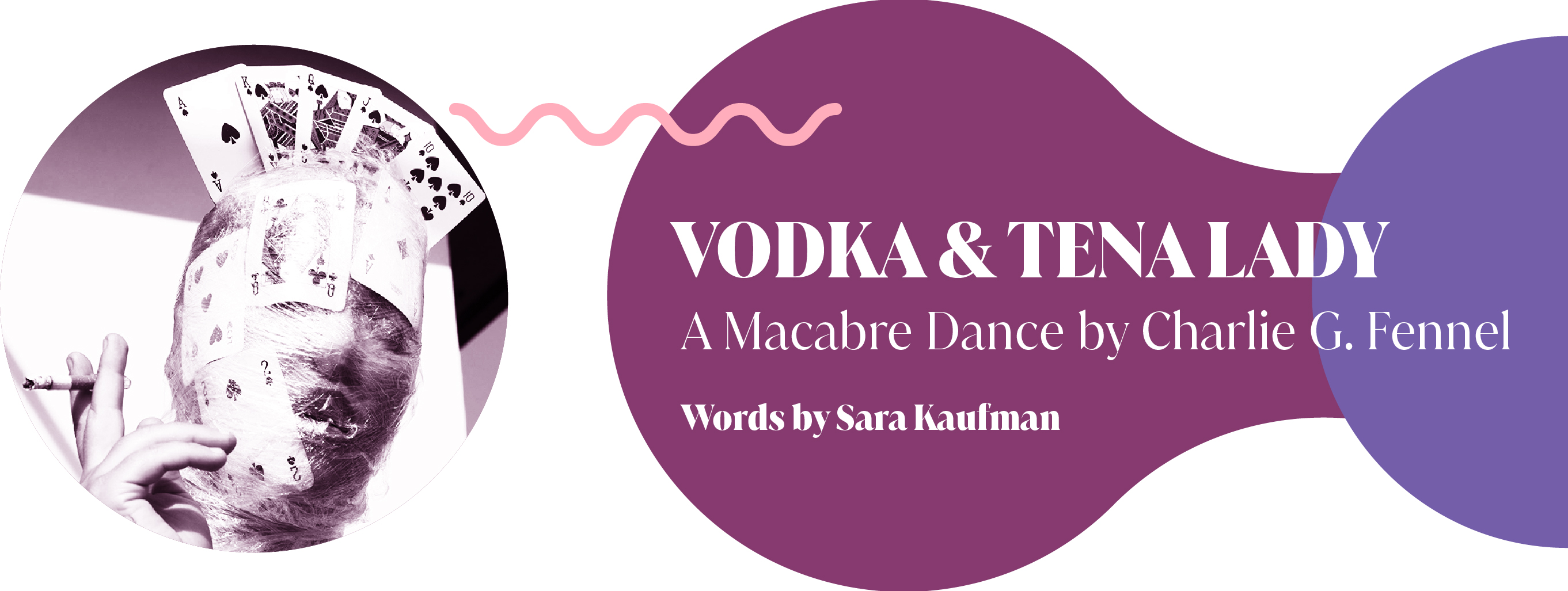Charlie G. Fennel was born Gioia Maini in Bologna, Italy. In 2005 they moved to Barcelona and in 2010 they lost their mother, a tragic event that would ultimately prove crucial to their artistic development. In 2012 they launched their eponymous footwear brand, naming the first collection Diana, after their mother. Four years later, life called them back to Bologna and to their maternal house to take care of their grandmother, Giulia. During this period of full-time caregiving, the photo and video series Vodka & Tena Lady started to take form as an artistic, ironic, and intimate depiction of this unlikely cohabitation. This experience, together with a set of strong political choices, also paved the way for Gioia’s transition to Charlie. (Note: The pronouns used throughout this piece, in reference to different times in Charlie’s life and identity, are according to Charlie’s request.)
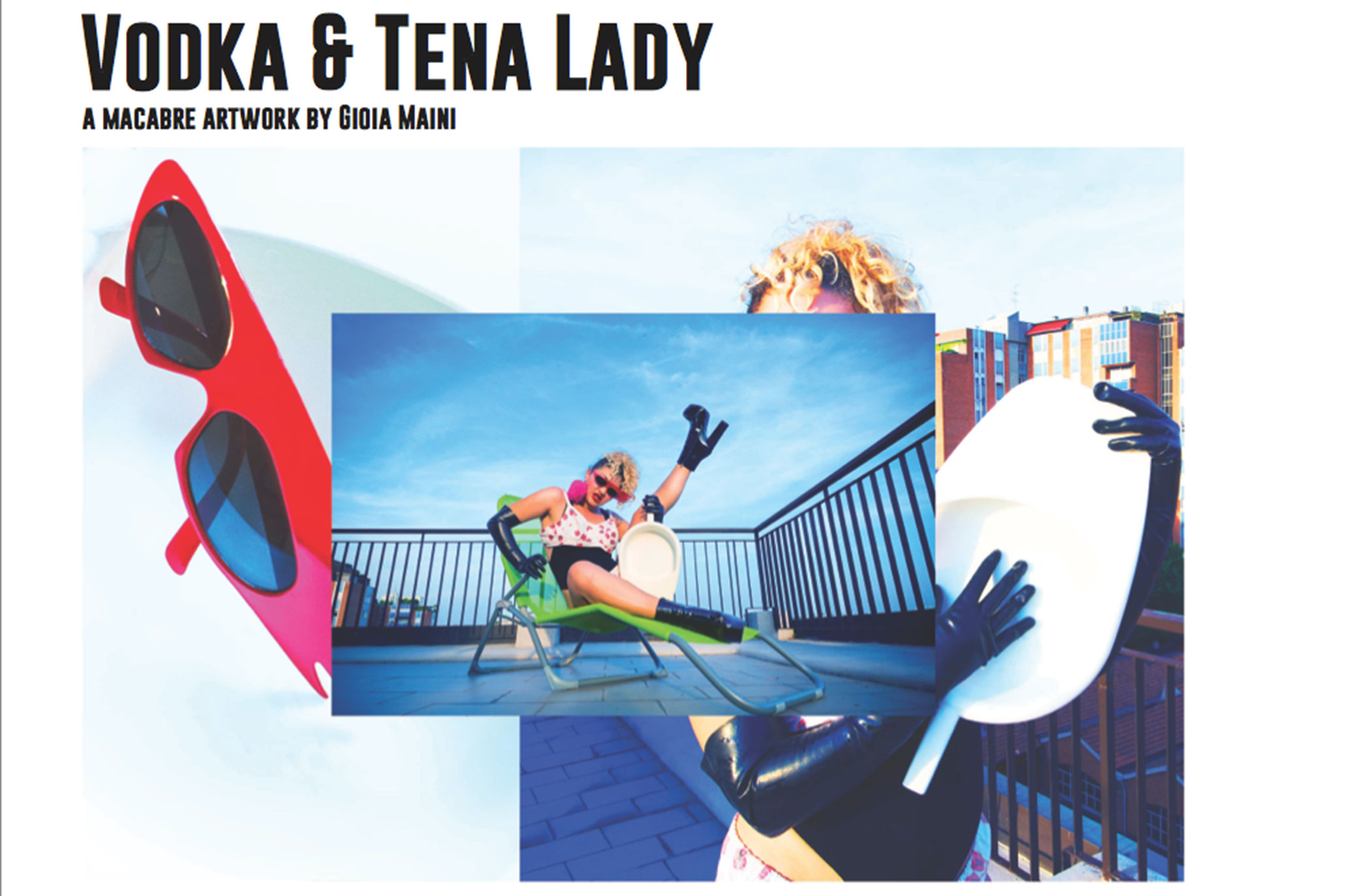
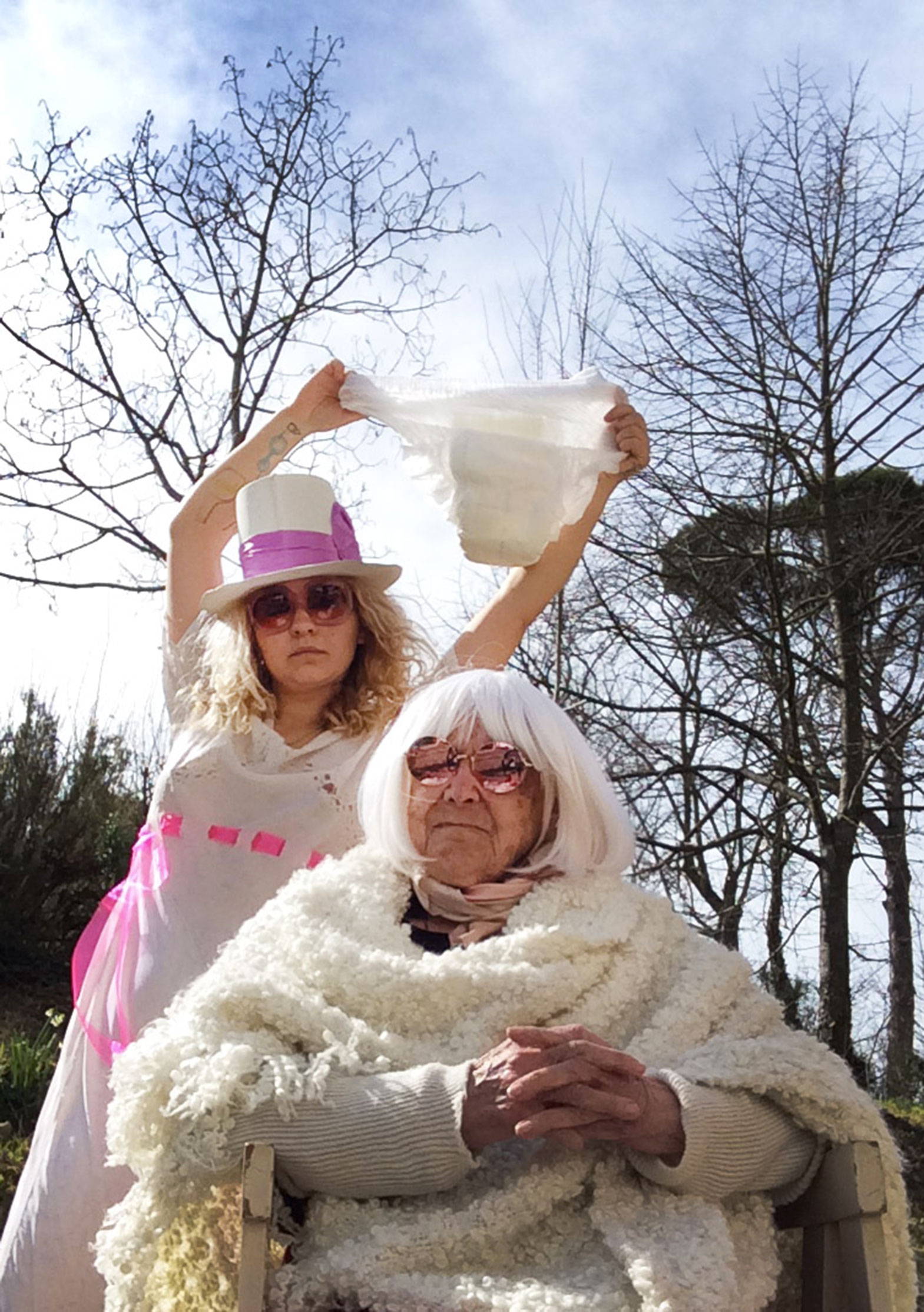
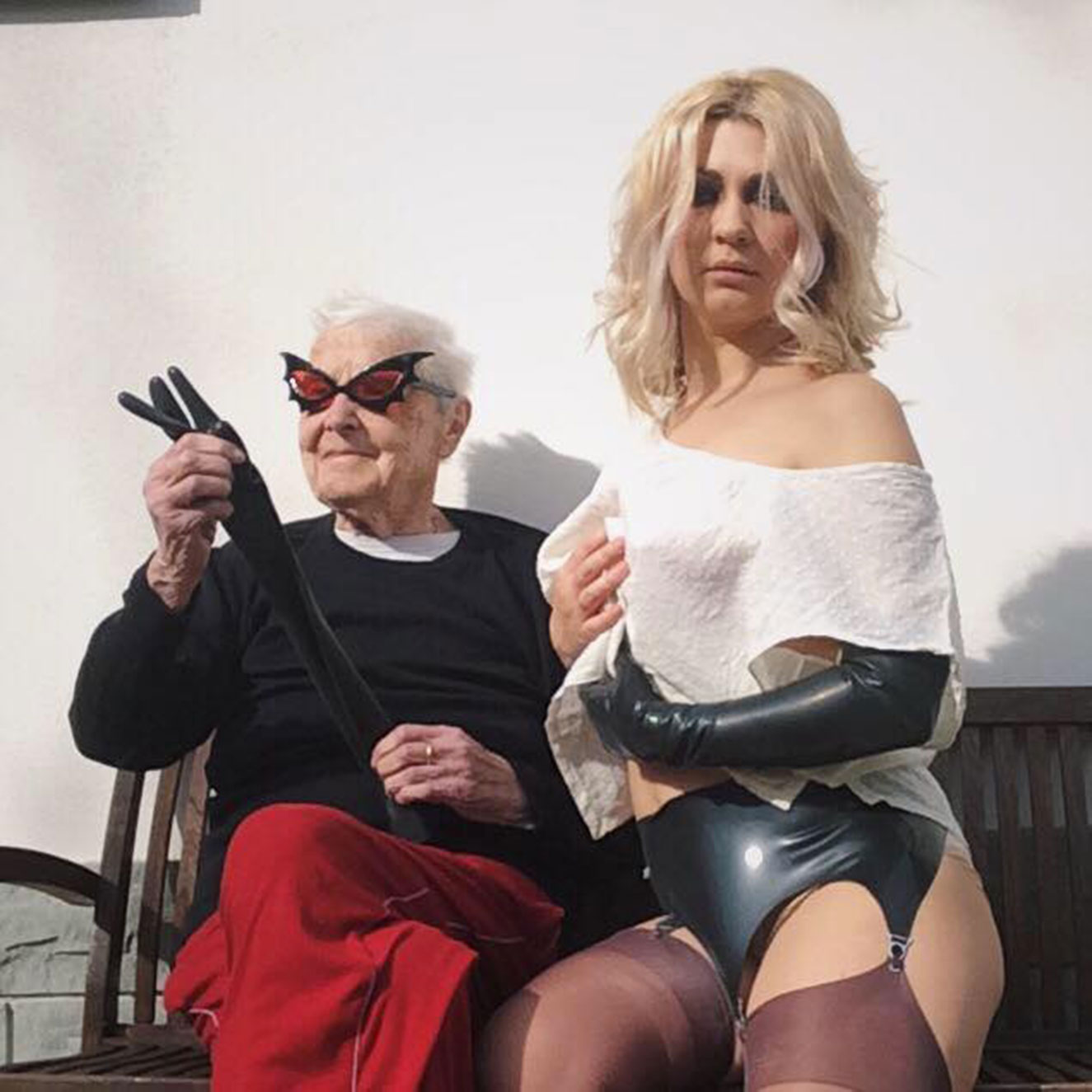 Top: Vodka & Tena Lady; art direction by Charlie G Fennel; graphic work by Matilde Piazzi
Top: Vodka & Tena Lady; art direction by Charlie G Fennel; graphic work by Matilde PiazziMiddle and bottom: Vodka & Tena Lady, Grandma Giulia and Charlie, photo by Charlie G Fennel
What place is there in the fashion world for the elderly, the sick, and, more generally, for those whose body functions cease to perform in a socially appropriate manner? What place is there for trivial matters such as diapers, enemas, and wheelchairs? What place is there for the act of care in its very unromantic declinations? The answer is all too easy: none. Fashion theoretically responds to something as everyday as the need to get dressed, but it does so in an aspirational manner. All that’s ugly, dirty, painful, and generally unsexy is left out. While diversity has become the industry’s latest buzzword, what we ultimately get is its edulcorated version, featuring airbrushed images of “unconventionally beautiful people” (whatever that means) which ultimately avoid investigating all that is impossible to glamourize. Which is a lot. Fashion needs to sell, and certain things just don’t sell, if anything, they repel. So what can a person who has been creating fashion for a living and eating and breathing the glamor that the industry exudes do, when all of a sudden they find themselves elbow-deep in caregiving and acknowledge that the fashion industry doesn’t represent them, indeed doesn’t want them, anymore? There are two options. 1: You bear it. 2: You work towards dismantling the system. Charlie chose the latter.
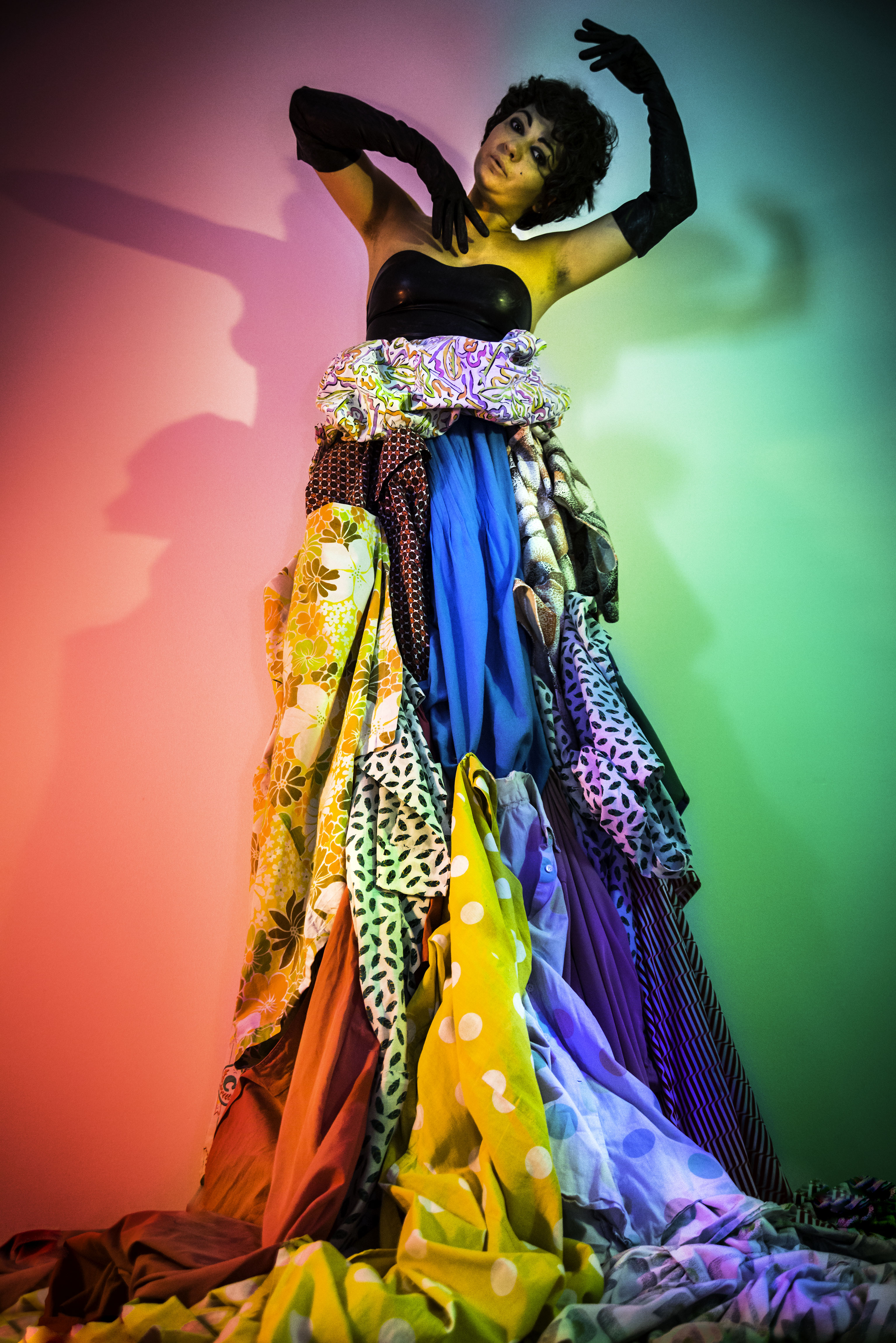
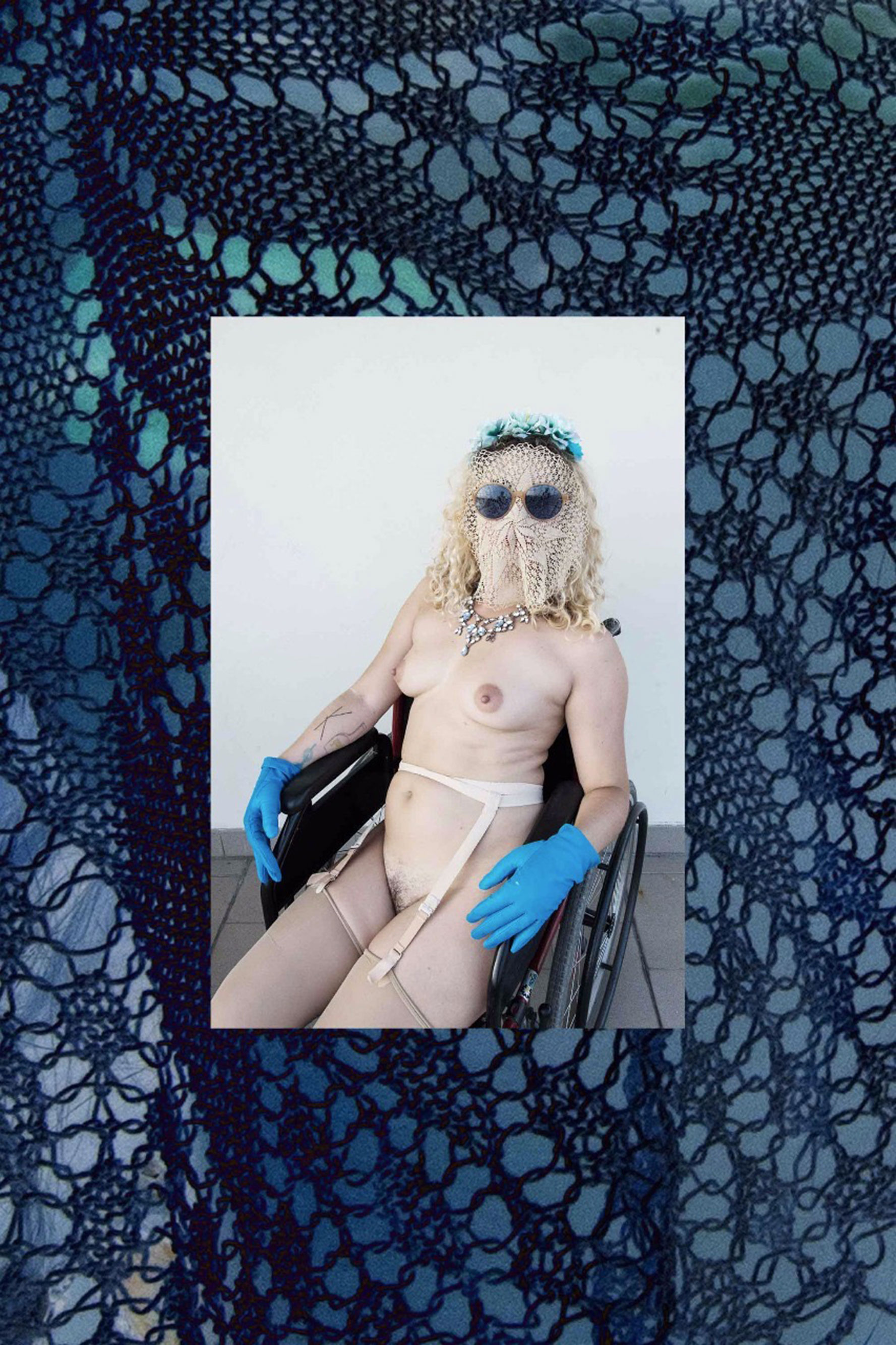 Top: Vodka & Tena Lady; art direction Charlie G Fennel; photo by Claudia Rossini
Top: Vodka & Tena Lady; art direction Charlie G Fennel; photo by Claudia RossiniBottom: Vodka & Tena Lady; art direction Charlie G Fennel; graphic work by Matilde Piazzi
Caregiving as a primary responsibility of women is embedded in patriarchal society. Most likely, it was a woman who took care of us when we were children, and it will be a woman who will nurse us during the final stage of our life. We take that for granted. We make children and we place them in the arms of women; we grow old, or sick, and we seek out a female relative to assist us. Gioia Maini lost the care and support of her mother when she was 28: old enough to not physically need it anymore, but still too young not to miss it. At the same time, she found herself burdened by having to mother her grandmother, a responsibility that became more challenging every year. Over a couple of years, she went from being a cool shoe designer with features in fashion magazines and a fun and relatively carefree life, to being a caregiver for an elderly woman. No more time for designing shoes, no more energy to promote the brand in trade shows around the world, no more features on Dazed or Metal, and indeed no more feeling like she belonged there anymore because once you find yourself - literally - in shit, it gets very hard to go back to fashion editorials like nothing happened. The curse of all women and of all other feminized beings, with something of an intergenerational twist. Enough to make most people lose their wits.
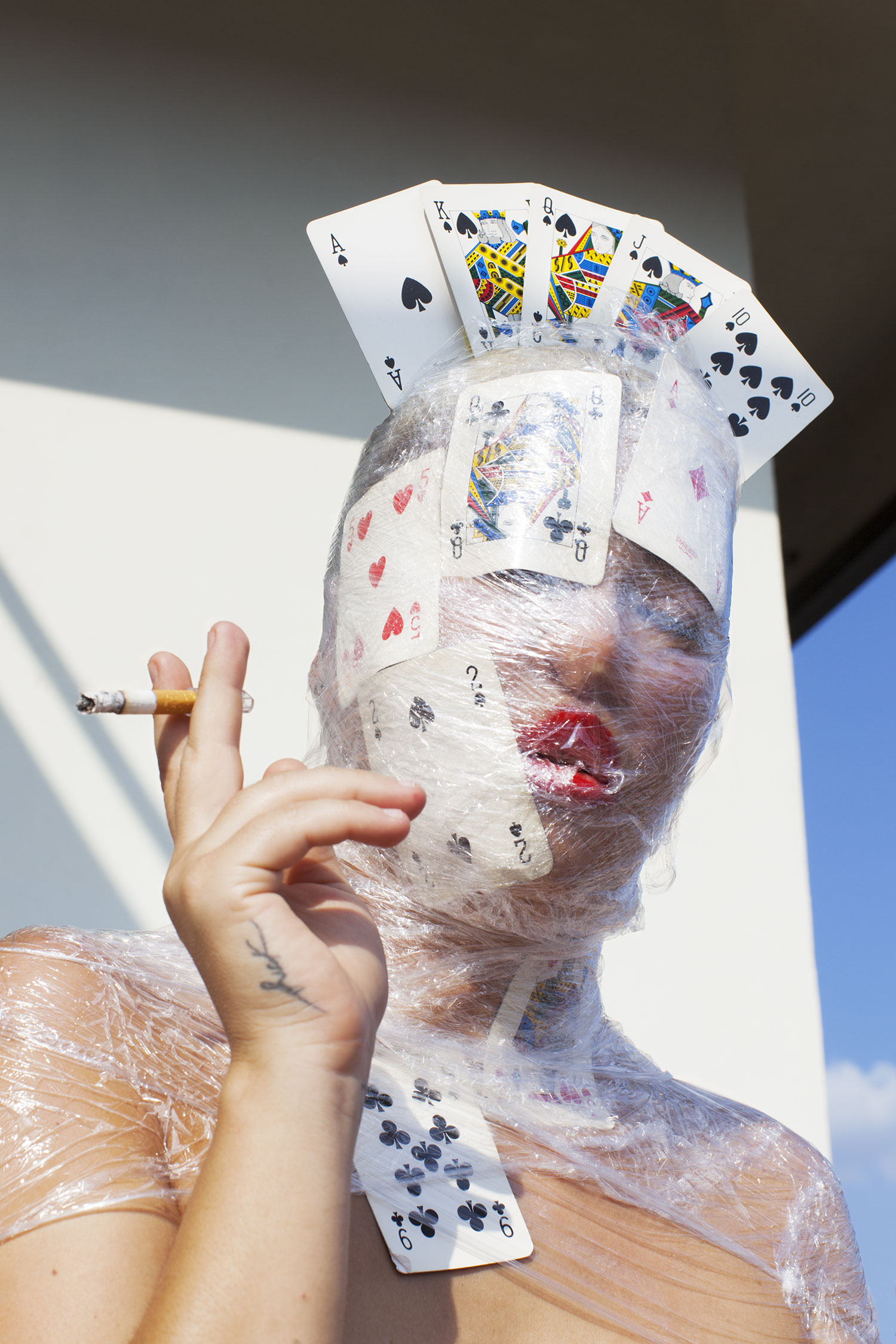
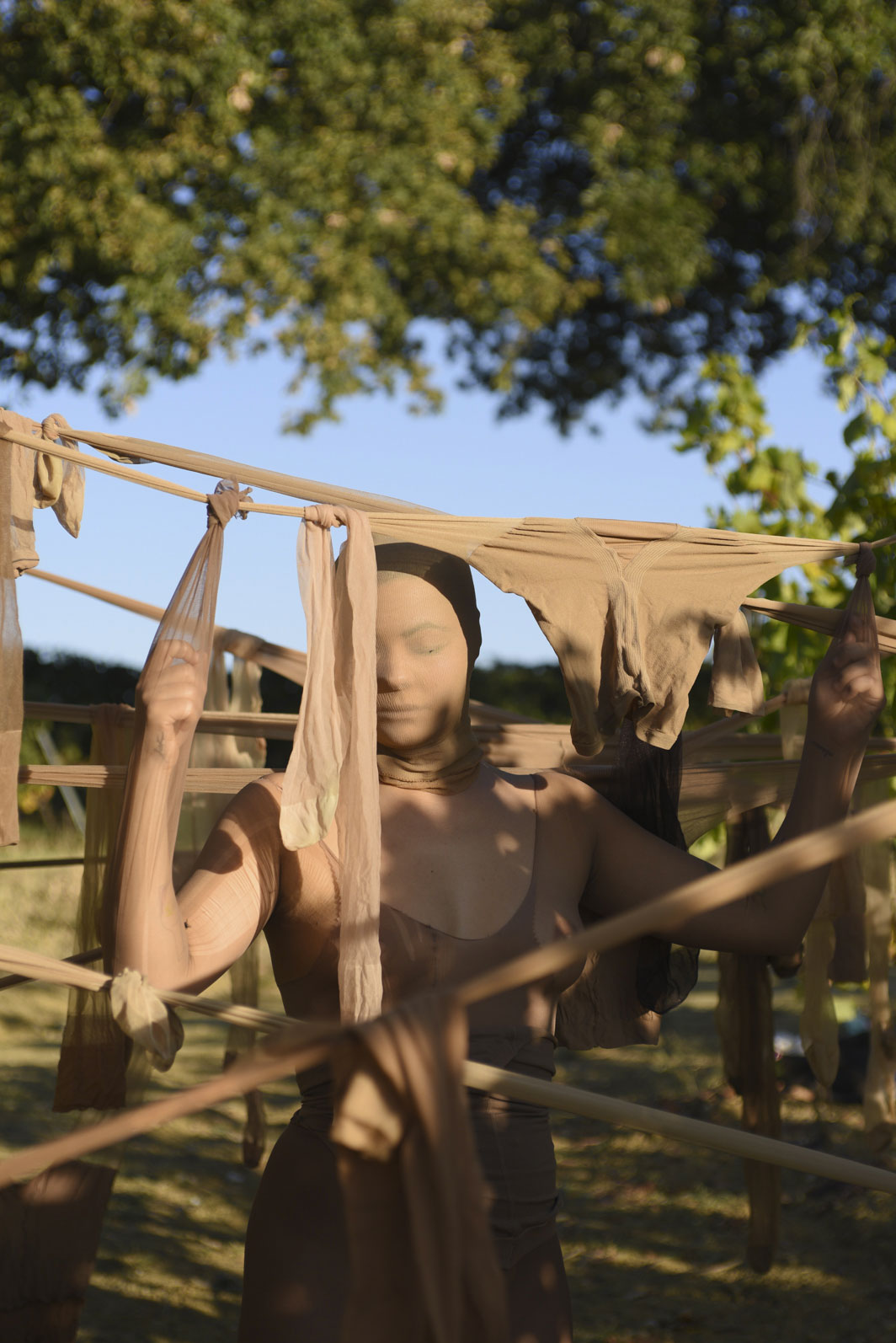
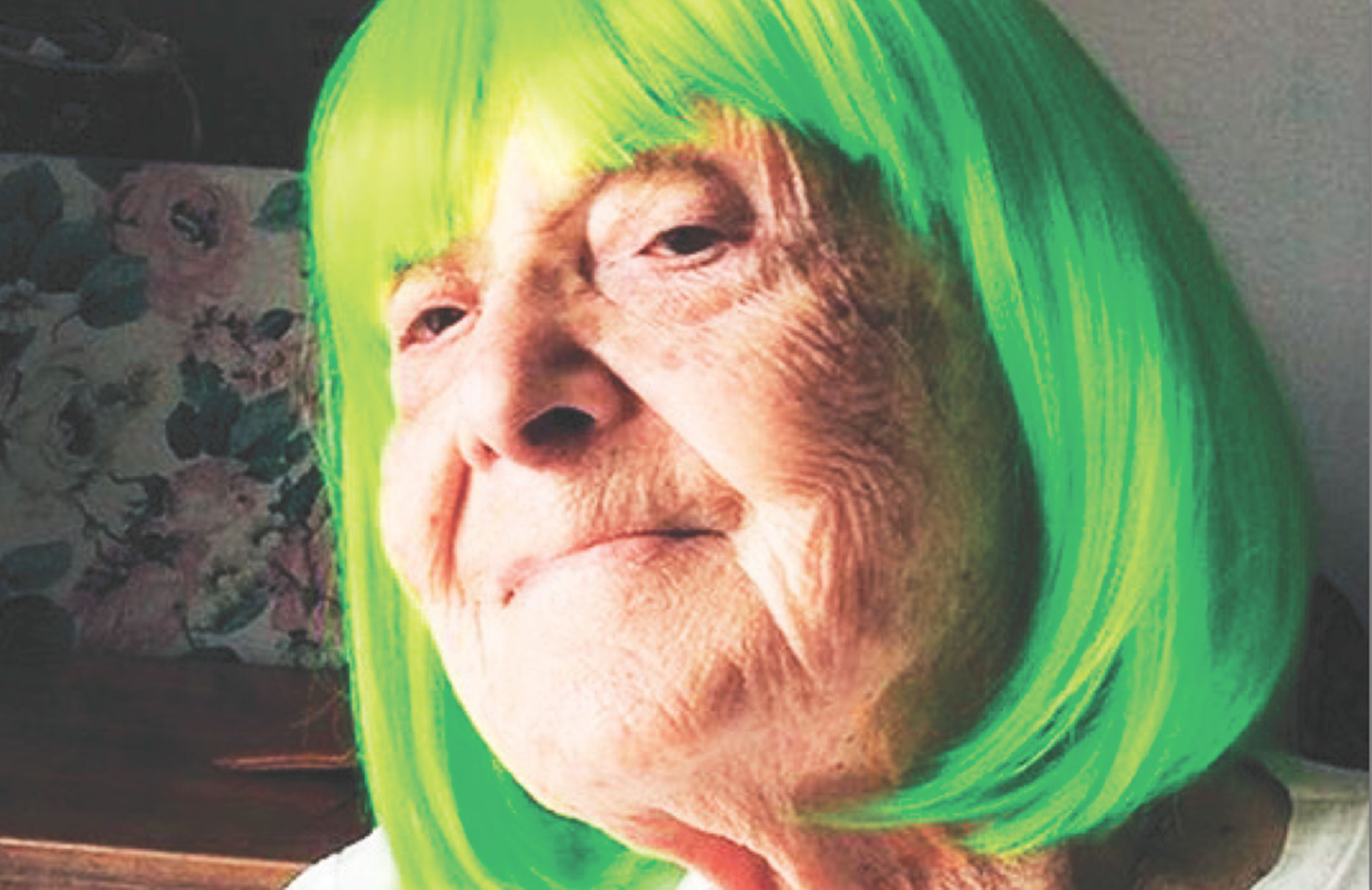 Top: Vodka & Tena Lady; art direction by Charlie G Fennel; photo by Sasha Ertel
Top: Vodka & Tena Lady; art direction by Charlie G Fennel; photo by Sasha ErtelMiddle: Vodka &Tena Lady, art direction Charlie G Fennel, photo by Tiziano Mainieri
Bottom: Vodka & Tena Lady, Grandma Giulia; photo by Charlie G Fennel
Instead of submitting to her fate, which would have ultimately led her to see her grandmother as a foe, Gioia made her an ally. Together, they identified that same patriarchal society that had put them in that situation in the first place as the true enemy, and made fun of a fashion world in which they had no place because, apparently, there’s no such thing as a fashionable way to deal with diapers and leaky bladders. In this way, Vodka & Tena Lady started to take form, initially as a performative act on Gioia’s Instagram page. Fueled by a fair amount of alcohol and antidepressants, Gioia created short videos depicting her life together with Grandma Giulia in a way that was both ironic and cynical, using a mix of medical devices and SM lingerie as costumes as well as everyday old-age and home-care objects as props. The videos turned out to be a dialog between generations, a mockery of the role of women in society, a ironically glamorous take on aging, illness, and incontinence, a macabre dance waiting for death to arrive, and, most of all, a way for Gioia to stay sane.
Death did eventually arrive, in 2017. It took Grandma Giulia, setting her free from the physical unpleasantness of aging while at the same time unburdening Gioia of the responsibility of caregiving. To honor her deceased grandmother, and to fill the void left by her liberating but nonetheless painful departure, Gioia invited her photographer friends to pay a tribute to the world of Vodka & Tena Lady by transforming her grandmother’s iconic belongings into fetishes. The result is a collection of images in which enemas, wheelchairs, diapers, medicine boxes, and vacuum cleaners are depicted through the lenses of fashion and covered in a glamorous patina because, in the end, fashion is nothing more than what we decide to elevate as such.
After her grandmother’s death, Gioia flew to New York for a much-deserved vacation. Upon her arrival, she gathered a bunch of friends on a rooftop and shaved her golden locks, with a glorious sunset as a backdrop. A few months later Charlie G. Fennel was officially born, free from patriarchal obligations.
Death did eventually arrive, in 2017. It took Grandma Giulia, setting her free from the physical unpleasantness of aging while at the same time unburdening Gioia of the responsibility of caregiving. To honor her deceased grandmother, and to fill the void left by her liberating but nonetheless painful departure, Gioia invited her photographer friends to pay a tribute to the world of Vodka & Tena Lady by transforming her grandmother’s iconic belongings into fetishes. The result is a collection of images in which enemas, wheelchairs, diapers, medicine boxes, and vacuum cleaners are depicted through the lenses of fashion and covered in a glamorous patina because, in the end, fashion is nothing more than what we decide to elevate as such.
After her grandmother’s death, Gioia flew to New York for a much-deserved vacation. Upon her arrival, she gathered a bunch of friends on a rooftop and shaved her golden locks, with a glorious sunset as a backdrop. A few months later Charlie G. Fennel was officially born, free from patriarchal obligations.
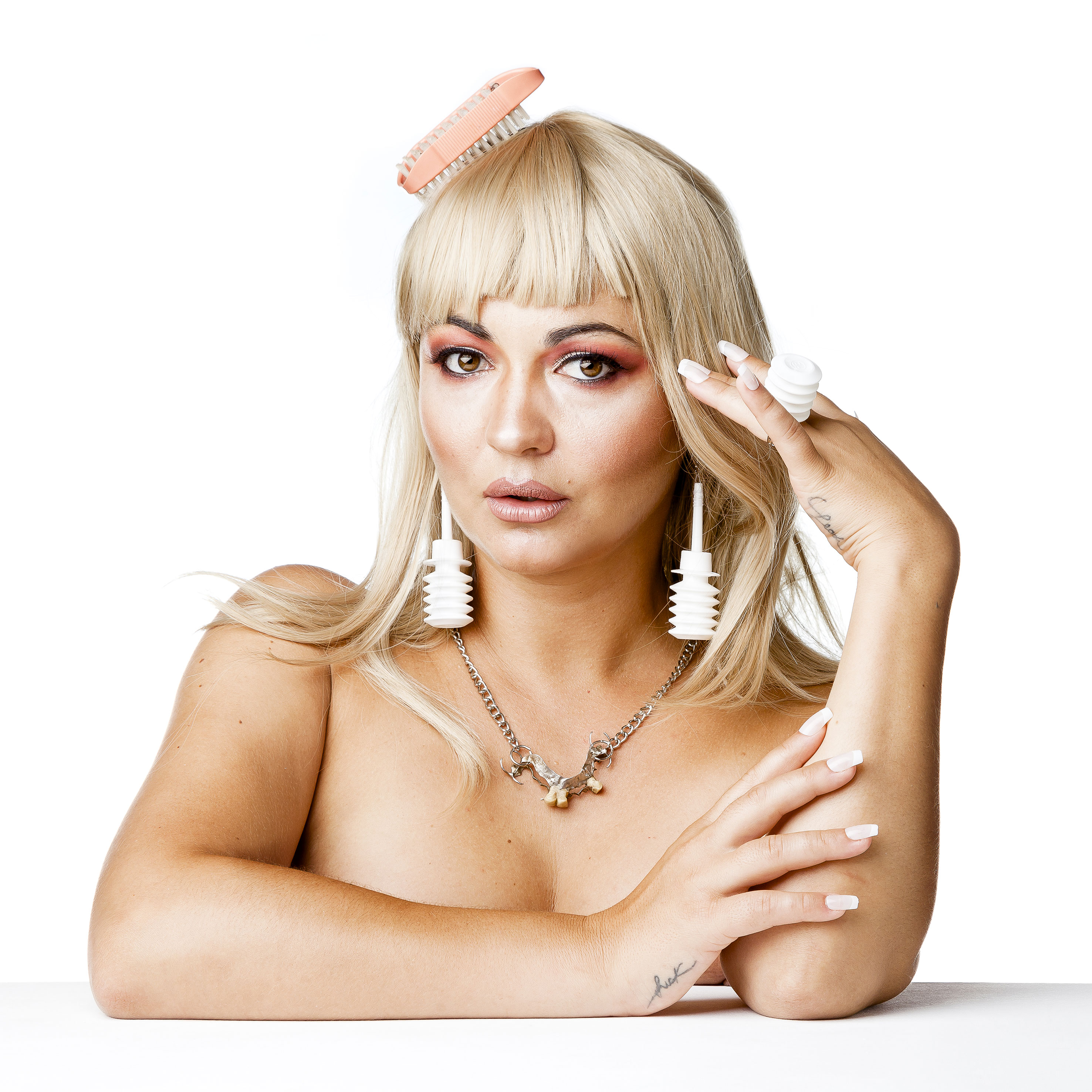
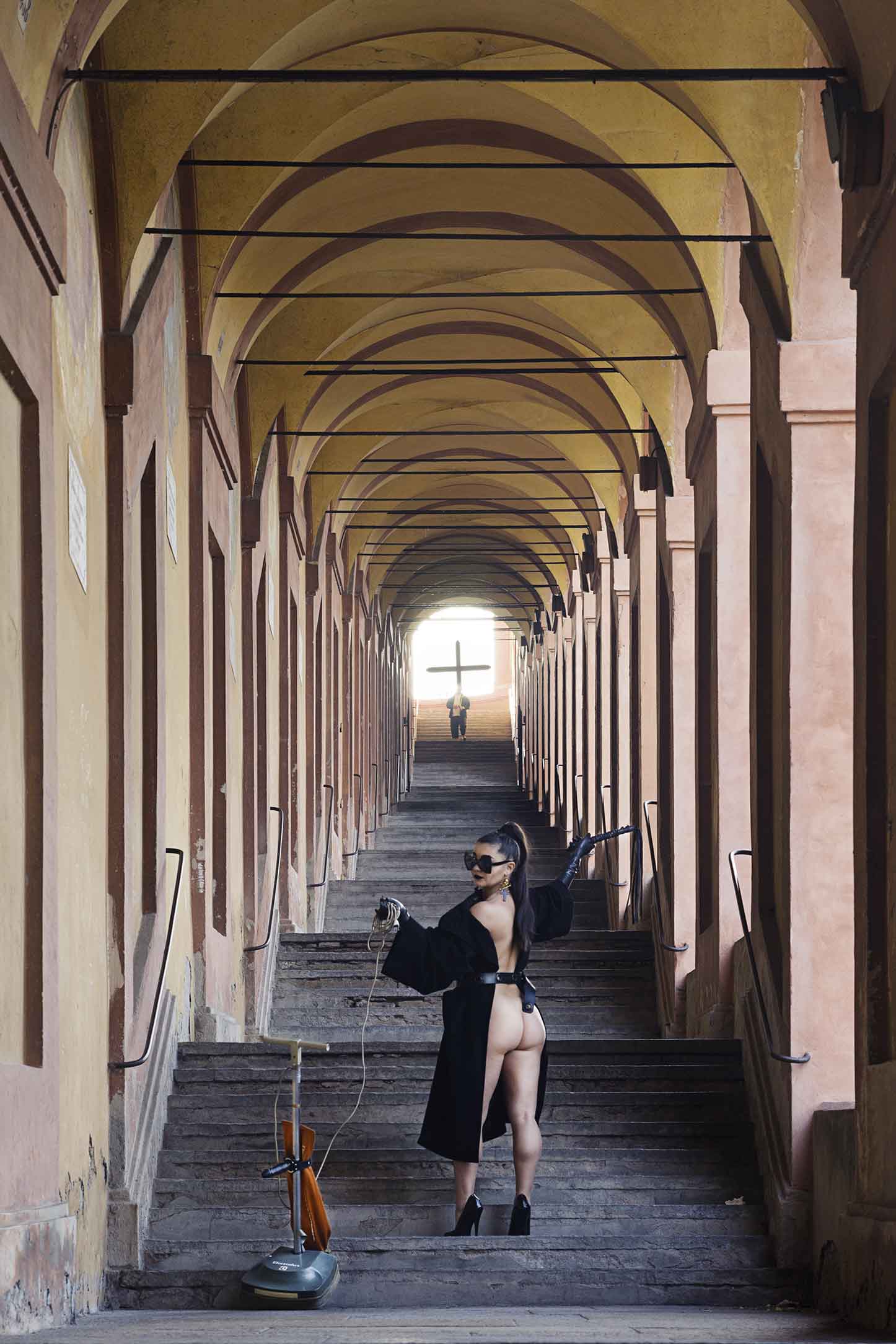 Top: Vodka & Tena Lady; art direction Charlie G Fennel; photo by Marcel Asso
Top: Vodka & Tena Lady; art direction Charlie G Fennel; photo by Marcel AssoBottom (no pun intended): Vodka & Tena Lady; art direction Charlie G Fennel; photo by Matilde Piazzi
Issue 15 ︎︎︎
Fashion & Southeast Asia
Issue 14 ︎︎︎
Barbie
Issue 13 ︎︎︎ Fashion & Politics
Issue 13 ︎︎︎ Fashion & Politics

